Will McCloughlin has a whole lotta love for Dungeons & Dragons – and he’ll be leading four fantasy book reviewer YouTubers in a live one-shot adventure this Wednesday. He tells us what the game means to him, and his writing.
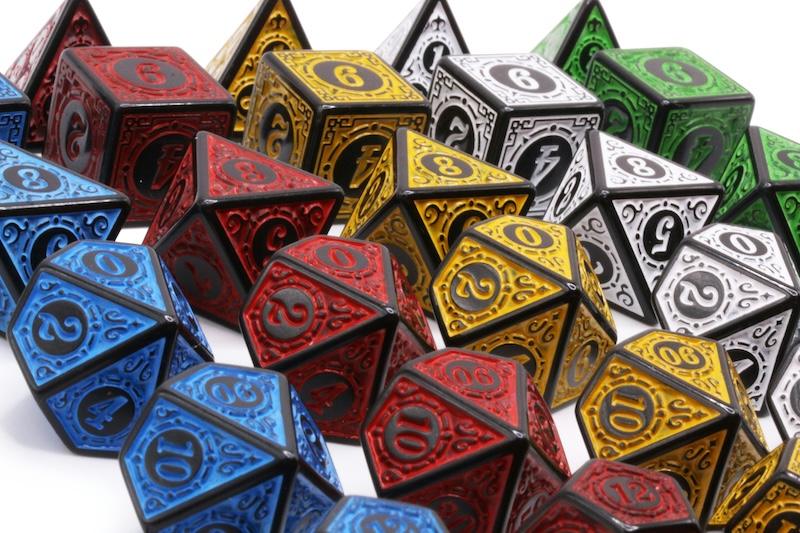
I’ve been a writer in one form or another my whole life. Starting from trying to bridge the gap between myself and a distant parent, I’ve always used storytelling as a way to engage with others, to mentally escape, and to entertain myself. So, naturally, when I finally came into contact with Dungeons & Dragons, I was instantly drawn to the seat behind the screen.
Worldbuilding, storytelling, dice, and the power of imagination—all rolled into one perfect package where, for a few hours a week, I got to take myself and my friends away from reality and into a world of my creation. My best friend Sam? A Half-Orc with a pet bear. My honorary little brother Patrick? The fledgling cleric Finn, dedicated to a god of time and reality. My buddy Kaytee in Canada? The badass but conflicted Warlock Cordelia, the Red Witch! And myself? Everything else. From a tree they granted brief sentience to, to a vicious goblin they interrogated, to the very Gods of the world.
And then there is the dice. Those treacherous, sparkly, plastic polyhedrals that could take a moment of triumph and turn it into downfall. Objects that trample both their plans and mine into dust and mud. Little gems of ruin and woe. That come in all sorts of styles and colours. Some even have little designs on them. No, I don’t have a dice problem. Why, do you know where I can get some more?
…Anyway!
By now, D&D has permeated not just the nerdy Fantasy space, but pop culture in general, so much so that most of us have some understanding of the fundamentals: You gather friends, make characters, and with the aid or hindrance of chance (the dice), you do… stuff. You solve problems, go on adventures, slay the mighty beast, and retrieve the MacGuffin!Â
Except you don’t. You sit around a table, or on a webchat call. You eat too many sweets and drink a near lethal number of fizzy drinks, and you roll little pieces of plastic. But that isn’t how you remember it.
(Photo by Timothy Dykes on Unsplash)
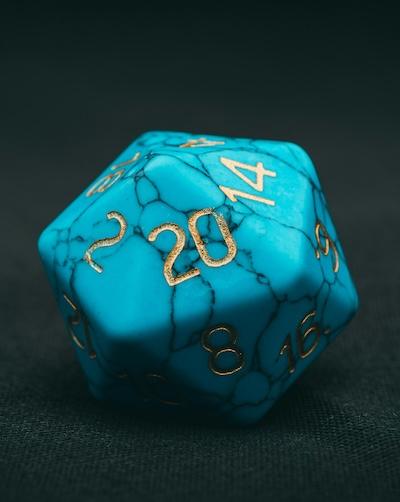
Instead, the memories you take away, the moments you share, are what you imagined. Though you might remember that it was a Natural 20 that let you land the killing blow on the Troll, it’s not the roll itself that stands out on the canvas of your mind. You remember Forest the Brave swinging his axe into the Troll’s knee to bring its head down to slaying height. You remember Cordelia almost being killed as it gripped her legs and ragdoll-slammed her face into the wall. You remember Finn casting a spell at the last moment to save Cordelia, riding to her defence on the back of Forest’s bear, Brear. The memories we make come from the story, from the experience.
Making the real world fade away
This wonderful, shared hallucination isn’t real, but it’s a memory I cherish. Every moment in that game is a moment that means so much to me. Why? Because of what I believe should be the most important word in the English language to both a speculative fiction writer AND a Game Master—verisimilitude. The illusion of truth or reality. That’s what we strive for in all fiction writing, and it’s what you need to accomplish to run a compelling D&D game. You want the real world to fade away. You want your readers and players to take flight on dragons, to hide from wraiths, to feel the anxiety, sorrow, and injustice of the world you present them with, because the human imagination is unmatched in its power.
So, hopefully, you’ll agree that the shared goals between writing a fantasy book and running a D&D campaign are clear. But why am I talking about D&D here? Well, because I honestly believe that running TTRPGs (Tabletop Role-Playing Games) made me a better writer. I even keep a red D20 (twenty-sided die) on my writing desk, just in case. When you plan a D&D campaign, you get to worldbuild, you get to plot. But when it’s game time, it’s on. You’re the person behind the screen, and you have a responsibility to keep the story moving and the verisimilitude alive. Rapid decision-making, rolling with insane player choices, and those evil clicky-clacky dice thwarting your plans, their plans, every damn plan.
Doesn’t that sound like writer’s block?
Doesn’t that sound like the sudden realization that something you’ve written doesn’t quite mesh?
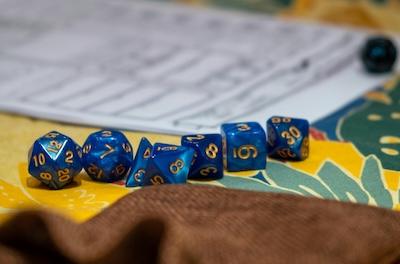
You don’t have time at the table to remap your plans, and you certainly can’t undo something clever a player came up with just because you didn’t plan for it or because the dice didn’t go your way even once. No, you roll with it. You move on and push forward. You move future events closer or push them further to give yourself time to do a little reshuffling of what is to come. Because at all costs, verisimilitude must be preserved.Â
(Photo by Gian-Luca Riner on Unsplash)
You have no choice, not if you want the game to be fun, to make the sort of memories that perk you up seven years later when you write a blog post! Because that Troll wasn’t meant to be there. No, they killed what was supposed to be the big boss in three rounds of combat (about ten minutes real time) and I could feel the verisimilitude breaking. The big boss was that easy to kill? Why had no one killed him before. Hey what was in that amulet he had on him he kept trying to use.
Keeping you – and the story, the adventure – moving
A troll. That troll. The troll I remember seven years on. I won’t go into how, why or what I came up with to make the troll coming from an amulet make sense, but I did it, it worked, and it was talked about from then on. I set a new standard for my games, made them adjust their play styles and be a little bit more wary. And it taught me a valuable lesson for my writing too. If a scene feels underwhelming, then the scene may well not be over yet. Maybe that feeling of underwhelm needs to sit for just long enough to drop a new hammer on the reader.
I’m not saying that running a TTRPG game like D&D is some sort of absolutely super important writing tool, but I think that the lessons we can learn from any and all collaborative story telling are lessons worth taking to heart. There aren’t many other opportunities to get in-the-moment feedback on the impact of your storytelling. There aren’t many other ways you get to read the body language of a group of people as you build the tension with just your description of a creature or a location.
This post came to me as I was planning an upcoming D&D game—a game that exists only because I write fantasy stories and connected with others who are equally passionate about the genre. On 6 November, my love of fantasy and D&D will come full circle when I get to lead four YouTube fantasy book reviewers on a D&D one-shot adventure. We’ll be playing live on the NerdLevelRising YouTube channel at 18:00 GMT.
They’ve created their characters, gathered their dice, and all that’s left is for us to sit down, roll, and bring this story to life together. And if you’ve made it this far through this post, you’re exactly the sort of person I’d love to come along and enjoy the journey with us.
PS: If you’re a D&D fan, don’t forget to enter’s the BFS’s competition to win a copy of Worlds & Realms, a beautiful 50th anniversary book. Details over here.

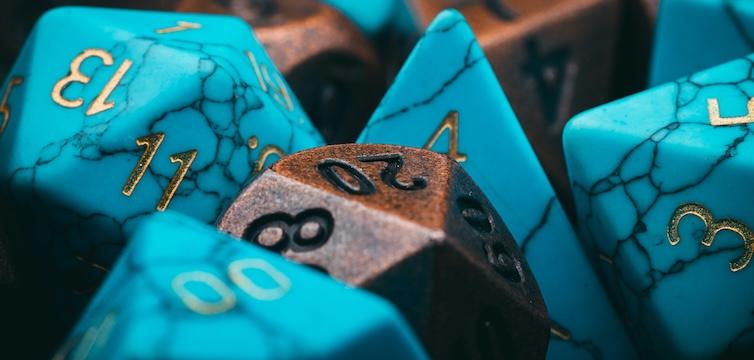
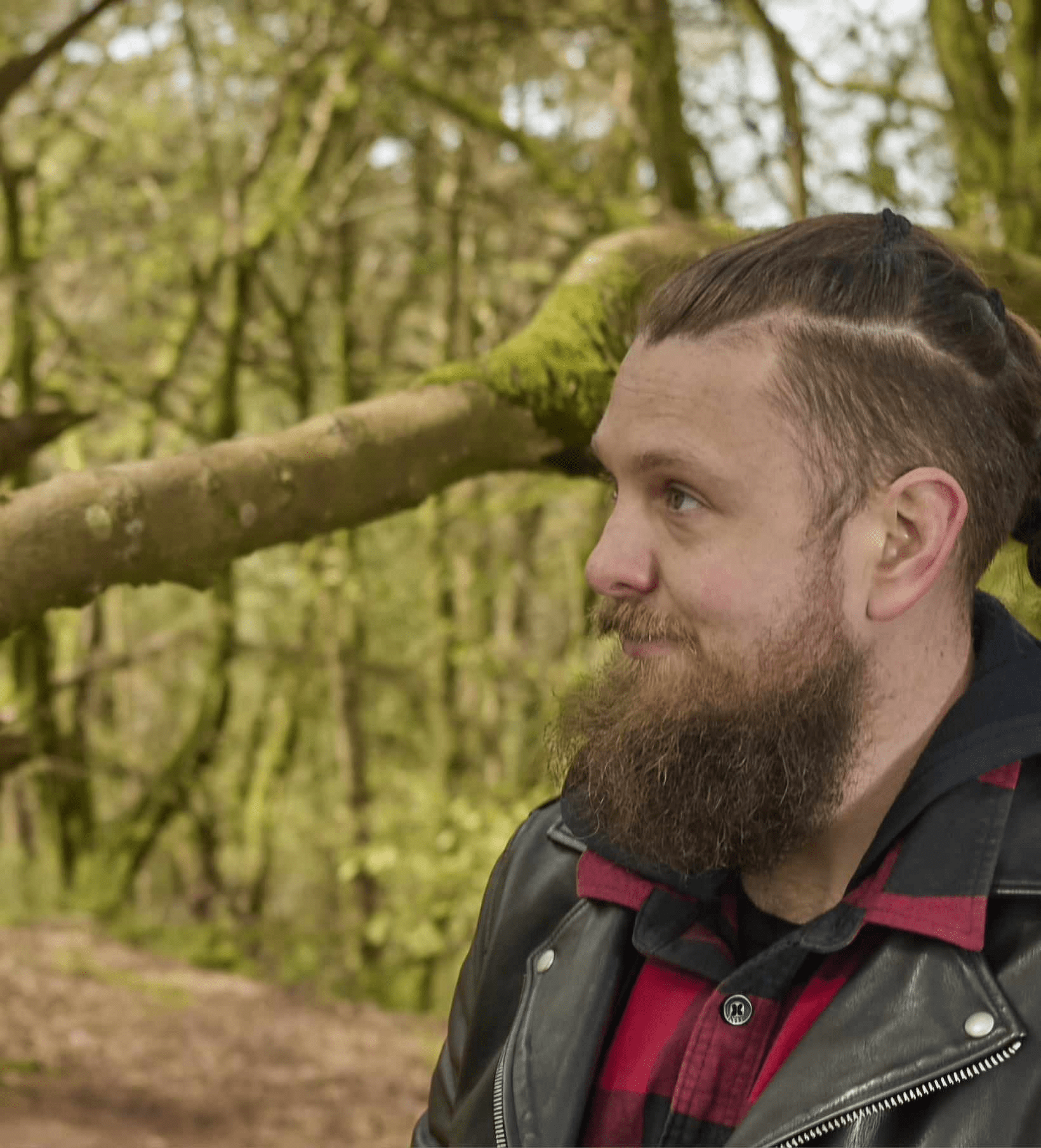
One response to “D&D, Writing and My Favourite Word: Verisimilitude”
Loved this post! And thank you for introducing me to the word ‘ verisimilitude’. 😃